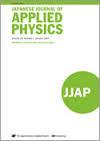一种可高度容忍硬件缺陷的深度神经网络推理加速器训练方法
IF 1.5
4区 物理与天体物理
Q3 PHYSICS, APPLIED
引用次数: 0
摘要
我们为深度神经网络推理加速器提出了一种名为 "硬件意识软件训练(HCST)"的新型训练方法,以恢复因硬件缺陷而导致的精度下降。所提出的训练方法完全由软件进行,其前向推理路径和反向传播反映了硬件的缺陷,克服了权重和偏置所用非易失性存储器的有限耐用性、非线性和开关不对称等问题。HCST 利用反向传播重新编排了前向传播和梯度计算中的数学表达式,从而在芯片制造工艺变化的影响下复制了硬件结构。通过 MNIST 数据集实验验证了这种方法的有效性,以证明其恢复精度的能力。此外,还公布了一种电路设计,用于测量加速器中使用的运算放大器的偏移电压和开环增益。本文章由计算机程序翻译,如有差异,请以英文原文为准。
A training method for deep neural network inference accelerators with high tolerance for their hardware imperfection
We propose a novel training method named hardware-conscious software training (HCST) for deep neural network inference accelerators to recover the accuracy degradation due to their hardware imperfections. The proposed training method is totally conducted by software whose forward inference path and backpropagation reflect the hardware imperfections, overcoming the problems of the limited endurance, the nonlinearity and the asymmetry for the switching of the nonvolatile memories used in weights and biases. The HCST reformulates the mathematical expressions in the forward propagation and the gradient calculation with the backpropagation so that it replicates the hardware structure under the influence of variations in the chip fabrication process. The effectiveness of this approach is validated through the MNIST dataset experiments to manifest its capability to restore the accuracies. A circuit design is also disclosed for measuring the offset voltages and the open loop gains of the operational amplifiers used in the accelerator.
求助全文
通过发布文献求助,成功后即可免费获取论文全文。
去求助
来源期刊

Japanese Journal of Applied Physics
物理-物理:应用
CiteScore
3.00
自引率
26.70%
发文量
818
审稿时长
3.5 months
期刊介绍:
The Japanese Journal of Applied Physics (JJAP) is an international journal for the advancement and dissemination of knowledge in all fields of applied physics. JJAP is a sister journal of the Applied Physics Express (APEX) and is published by IOP Publishing Ltd on behalf of the Japan Society of Applied Physics (JSAP).
JJAP publishes articles that significantly contribute to the advancements in the applications of physical principles as well as in the understanding of physics in view of particular applications in mind. Subjects covered by JJAP include the following fields:
• Semiconductors, dielectrics, and organic materials
• Photonics, quantum electronics, optics, and spectroscopy
• Spintronics, superconductivity, and strongly correlated materials
• Device physics including quantum information processing
• Physics-based circuits and systems
• Nanoscale science and technology
• Crystal growth, surfaces, interfaces, thin films, and bulk materials
• Plasmas, applied atomic and molecular physics, and applied nuclear physics
• Device processing, fabrication and measurement technologies, and instrumentation
• Cross-disciplinary areas such as bioelectronics/photonics, biosensing, environmental/energy technologies, and MEMS
 求助内容:
求助内容: 应助结果提醒方式:
应助结果提醒方式:


